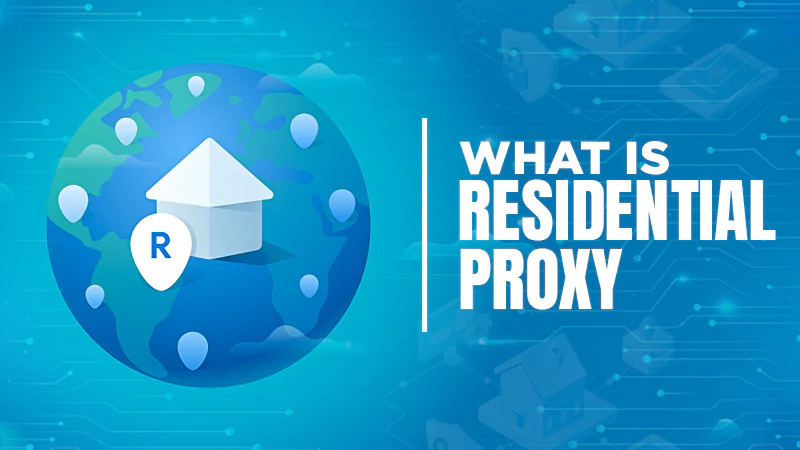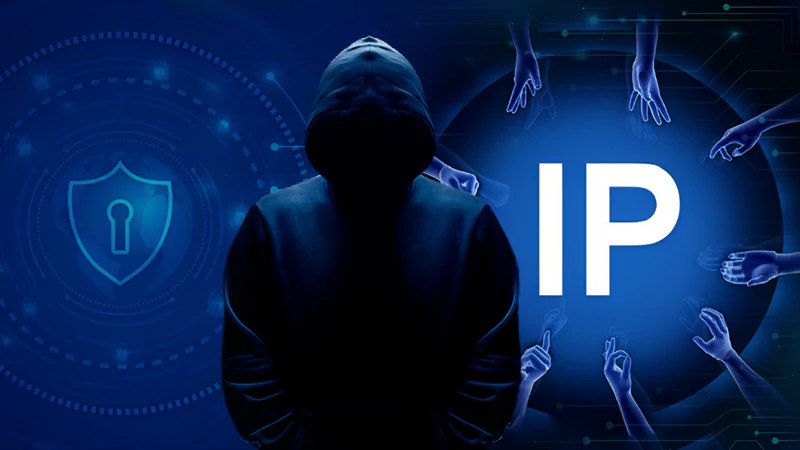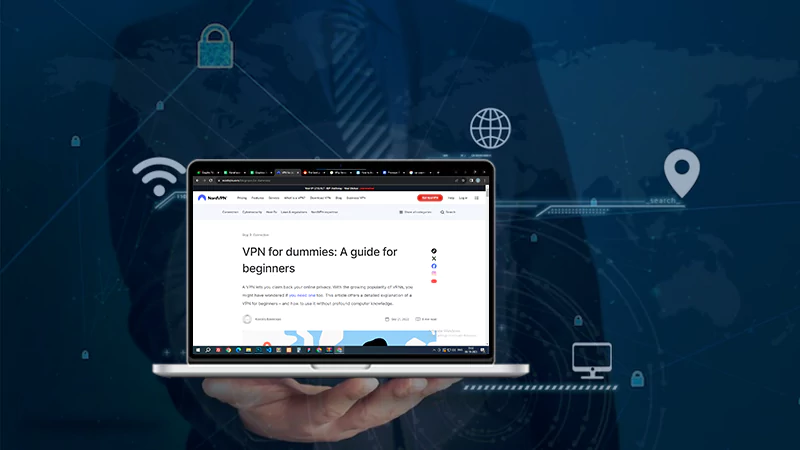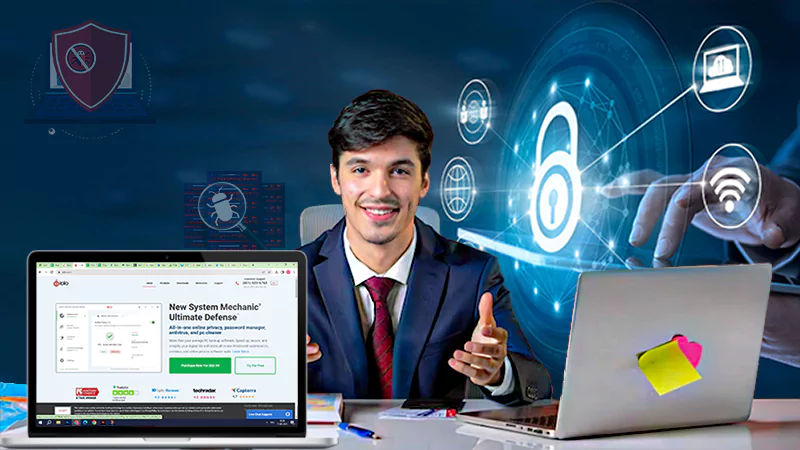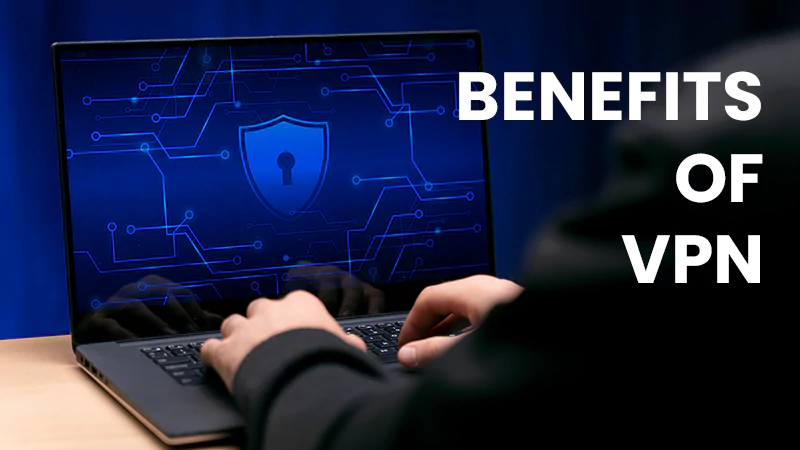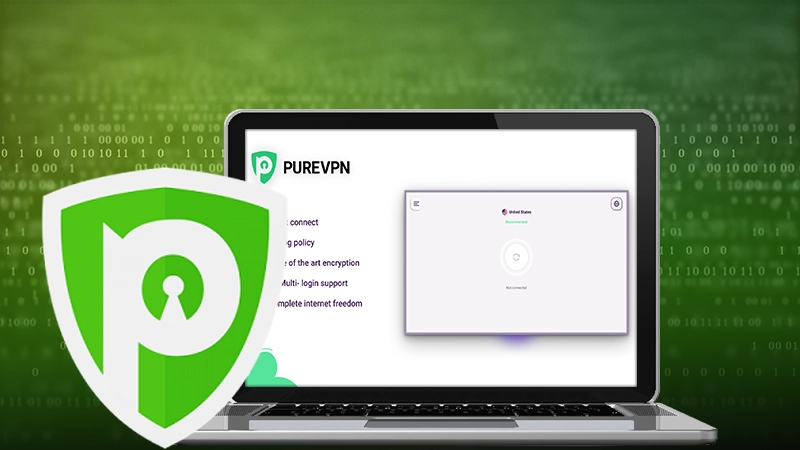The Importance of Online Privacy: How to Protect Yourself
Online privacy has become an increasingly important issue in recent years, with more and more of our personal information being shared and stored on the internet. As a result, it’s important for individuals to take steps to protect their own privacy online.
Online privacy is important for a number of reasons. First, it allows individuals to maintain control over their personal information and who has access to it. This is especially important in an age where so much of our personal information is shared and stored online.
Second, protecting your online privacy can help to prevent identity theft and other forms of online fraud. When you share personal information online, you are at risk of having that information stolen by criminals who can use it to impersonate you and steal your money or your identity.
Third, online privacy is important for your mental and emotional well-being. When you share too much personal information online, you are at risk of being targeted by cyberbullies or other online predators. This can have serious consequences for your mental health and can even lead to depression and anxiety.
There are several steps that you can take to protect your online privacy. These include:
Blocking Cookies
Cookies are small pieces of data that are stored on your computer when you visit a website. They are typically used to remember your preferences or to track your browsing habits. For example, if you visit an online store and add items to your shopping cart, a cookie will be used to remember those items so that they are still in your cart when you return to the site later.
Cookies can be useful for improving your browsing experience, but they can also be used for tracking your online activities. This is why many people choose to disable cookies or to use privacy-focused browsers that block cookies by default.
To manage cookies on your computer, you can use the settings in your web browser. For example, in Google Chrome, you can go to Settings > Privacy and Security > Cookies and other site data to manage your cookie settings. From here, you can choose to block or allow cookies from specific sites, or you can choose to block all cookies.
These cookies can track your browsing habits and can be used to target you with ads. To protect yourself from this type of tracking, you can use a privacy-focused browser such as Firefox or Brave, which block cookies by default. You can also use browser extensions such as Privacy Badger to block cookies from websites that you don’t trust.
Don’t Share Too Much Information on Social Media
It’s important to be cautious about what you share on social media. Before you post anything online, think about whether or not it’s something that you would be comfortable with other people seeing. If you’re not sure, it’s best to err on the side of caution and not post it.
Sharing too much personal information on social media can have a number of negative consequences. For one, it can make you a target for cyberbullies or other online predators. If you share sensitive information about yourself, such as your home address or your phone number, you are at risk of being stalked or harassed.
In addition, sharing too much personal information on social media can also put you at risk of identity theft. If you share details about your life, such as your date of birth or your mother’s maiden name, criminals can use that information to impersonate you and steal your money or your identity.
Finally, sharing too much information on social media can also have negative effects on your mental and emotional well-being. When you share sensitive or personal information online, you are opening yourself up to criticism and judgment from others. This can lead to feelings of anxiety and depression, and can even cause you to second-guess your decisions and actions.
Overall, it’s important to be cautious about what you share on social media. By limiting the amount of personal information that you share, you can help to protect yourself from cyberbullies, identity thieves, and negative mental health effects.
Monitoring Your Digital Footprint
One way to protect your online privacy is to monitor your digital footprint. Your digital footprint is the trail of information that you leave behind when you use the internet. It includes things like your browsing history, the websites that you visit, and the personal information that you share online.
To monitor your digital footprint, you can start by taking inventory of the personal information that you have shared online. This could include things like your home address, your phone number, your date of birth, and other sensitive information. Once you have a list of this information, you can take steps to remove or update any outdated or incorrect information.
Next, you can use tools such as Google’s My Account to see what personal information Google has collected about you. This can help you to identify any data that you want to remove or update.
Use a VPN
It’s a good idea to use a virtual private network (VPN) when you’re connected to the internet. A virtual private network (VPN) is a tool that can help to protect your online privacy. VPNs encrypt your internet traffic, which means that anyone who is trying to intercept your data will be unable to read it. This is especially important when you’re using public Wi-Fi networks, as these are often targets for hackers.
To use a VPN, you will need to download and install a VPN client on your computer or mobile device. Once the VPN client is installed, you can connect to a VPN server by selecting a server location and entering your login credentials. Once you are connected to the VPN server, all of your internet traffic will be encrypted and routed through the VPN server, making it more difficult for others to intercept your data.
There are many different VPN providers to choose from. When choosing a VPN provider, it’s important to do some research and read reviews to make sure that you are choosing a reputable and reliable provider.
Use an Antivirus
An antivirus program can help to protect your online privacy to a certain extent. An antivirus program is designed to protect your computer from malware and other security threats. It does this by scanning your computer for malicious software and blocking any threats that it finds. This can help to protect your personal information from being stolen or corrupted by malware. Make sure that you are using the best antivirus software for your computer in order to protect your data. Don’t always go for free ones as they offer limited protection only.
However, an antivirus program is not equipped to protect your online privacy in other ways. For example, it cannot prevent websites from tracking your browsing habits or prevent others from intercepting your internet traffic. To protect your online privacy in these ways, you will need to use other tools and strategies, such as privacy-focused browsers and VPNs.
You can also use strong passwords and enable two-factor authentication on your accounts whenever possible. Weak passwords can be dangerous as hackers can easily guess them and steal your data.
By following these simple steps, you can help to protect your online privacy and keep your personal information safe and secure.
What Is Mobile Proxy And How Do They…
What Is Residential Proxy? Definition And Guide 2024
Protect Yourself from Cybercrime: Top 5 Smart Strategies…
Strategies for Cyber Success: Safeguarding and Managing Your…
Cybersecurity Course Online: Navigating the Digital Threat Terrain
Are You Being Spied On? 5 Reasons Why…
Fortifying Your Online Fortress: Unveiling the Best Paid…
The Imperative of Cybersecurity Integration in Front-End Development…
10 Tricks for Staying Cyber-Secure While Binge-Watching
Securing Your System: The Importance of Anti-Malware Software
Benefits of VPN for Enterprise Networks: Enhanced Security
PureVPN – The Best Streaming VPN


